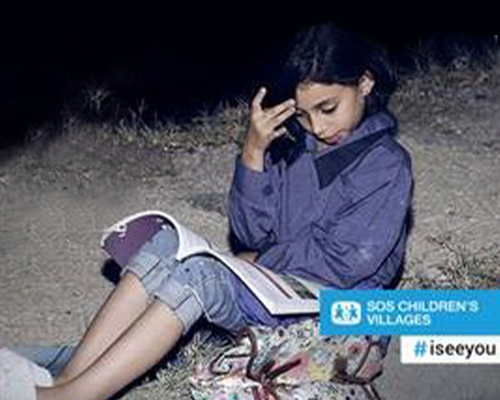I See You Campaign
On the occasion of World Orphan’s Day, celebrated annually on the second Monday of November, SOS Children’s Village Jordan is strengthening efforts to raise funds to continue caring for orphans in Jordan by providing them with alternative family structures and social programmes.
SOS Children’s Villages International is an Austria-based NGO that has been operating for 70 years and now works in 136 countries.
In September of this year, the organisation launched the #iseeyou campaign to raise awareness that “everywhere, children are neglected, abandoned, abused, orphaned or displaced, but we don’t always see them”, according to its website.
“The first SOS Children’s Village was opened in 1949 in Imst in Austria by Hermann Gmeiner because after World War II, the number of abandoned children and orphans in the world had increased, and his idea spread around the world,” said Mohammad Shalaldeh, national director of SOS Children’s Village Jordan and Palestine, in an interview with The Jordan Times on Monday.
“We started working in Jordan in 1983,” he noted, adding that the first SOS Children’s Village in the Kingdom was officially opened in Amman in 1987 by His Majesty the late King Hussein and Her Majesty Queen Noor, and was followed by two further villages, one founded in Aqaba in 1992 and one in Irbid in 1999.
“We accept children who meet our criteria through the Ministry of Social Development,” the director said, noting that many of the children have either lost their parents or their families are unable to care for them.

Currently, the organisation cares for around 260 orphaned and vulnerable children at the three villages, which consist of different family houses in which substitute mothers care for 5 to 8 children who live like brothers and sisters, according to Shalaldeh.
“We also care about gender policies, child protection and violence prevention,” he added.
The organisation’s aim is to strengthen each individual child, develop their talents and integrate them into the local community, so they go to public schools, Shalaldeh said.
When a child is 13 or 14 years old, they move to one of several youth houses run by SOS in Jordan and live there until they are 18 years old. Shalaldeh highlighted that even after a child is no longer under the organisation’s direct care, they continue to receive support until they are fully independent, adding that until now, over 400 young people from the villages have graduated with university degrees.
In addition to the children’s villages, the organisation is also responsible, via community-based organisations in disadvantaged areas, for programmes that support Jordanian families at risk of abandoning their children and has also launched a programme that targets Syrian refugees, according to the director.



